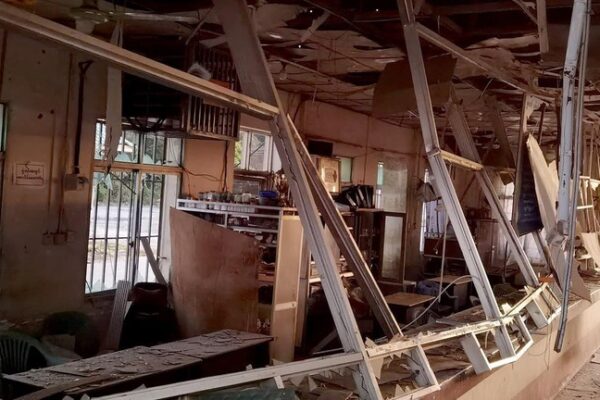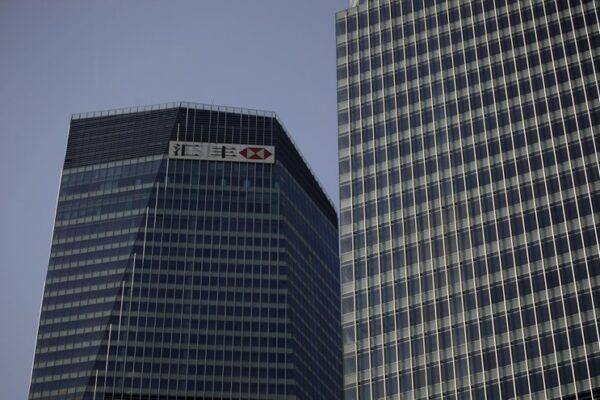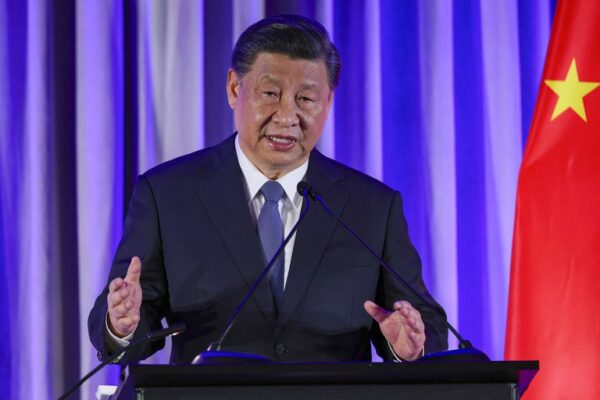
Chinese authorities fire tear gas at people fleeing Myanmar fighting
Chinese authorities fired tear gas at people attempting to flee from intensifying fighting between Myanmar’s military junta and allied ethnic armed groups. Social media videos showed several dozen people covering their faces at the China-Myanmar border as tear gas hovered on one side of a fence in Shan state’s Laukkaing township on Saturday afternoon. “Chinese police and soldiers used tear gas to expel Kokang people who sought shelter at the border line,” a resident in Laukkaing township told Radio Free Asia on condition of anonymity for security reasons. “They recently fled there due to the escalation of armed conflict.” The allied resistance forces announced on Friday that they would intensify an offensive that has seen widespread gains over the last month. The “Three Brotherhood” Alliance of the Arakan Army, the Ta’ang National Liberation Army and the Myanmar National Democratic Alliance Army, or MNDAA, launched an offensive on Oct. 27 – dubbed “Operation 1027” – and have made notable gains against the military in several key cities in Shan state. On Saturday, the MNDAA seized the Kyin San Kyawt border gate near the key border town of Muse, about 90 kilometers (55 miles) from Laukkaing. The gate is one of five major entry points in the area that handles Myanmar’s largest volume of trade with China. It’s the second border gate in Muse township that the alliance now controls, along with two others elsewhere, according to the Associated Press, which noted that almost all legal cross-border trade with China has stopped over the last month because of the fighting. On Sunday, allied forces near another gate in the area carried out drone attacks, which disrupted a cargo inspection area and hit some buildings, while junta forces fired artillery shells from a highland area, locals told RFA. Junta spokesman Maj. Gen. Zaw Min Tun confirmed to state-owned media on Monday that there were clashes near Muse over the weekend, but he didn’t disclose details or comment on the loss of control of the Kyin San Kyawt gate. China’s live-fire exercises In Laukkaing, MNDAA spokesperson Li Kyar Win said he has seen the tear gas videos but didn’t have any further information. He noted that junta troops had carried out artillery attacks on nearby areas, which forced the local residents to move toward the border. Shan state-based media Shwe Phee Myay News Agency and the local Kengtung Hit Tine online news outlet reported on their Facebook pages that Chinese police had deployed tear gas on the border line.RFA has not independently confirmed the reports. Messages left with Chinese government sources seeking comment about the tear gas weren’t immediately returned on Monday. This house was damaged in fighting in the 105 Mile Trade Zone in the Myanmar-China border town of Muse on Nov. 27, 2023. Credit: Citizen journalist Also on Saturday, junta-controlled media reported that the Chinese government informed Myanmar’s military of live-fire exercises near the border over the weekend. “The regular military drill of the southern command of the People’s Republic of China was reported on Nov. 25,” Zaw Min Tun said. “It is aimed to ensure peace and stability at the border area.” Political analyst Than Soe Naing told RFA that the Chinese drills are the first in the area since 2017 – a period that also saw heavy fighting in Shan state. “I assume that the Chinese army conducts these drills to protect their sovereignty and to ensure the least impact on their people,” he said. “It is not directly related to Operation 1027, but it is their message for readiness on security of their people’s lives and property.” Chinese media reported that the exercises began Saturday and ended Monday, but didn’t disclose the exact location or the number of troops involved. “It is not an unordinary exercise,” said Thein Tun Oo, the executive director of Thayninga Institute for Strategic Studies, a think tank run by former military officers. “There may be some rumors and assumptions on this issue,” he said. “However, China and Myanmar have agreed on military exercises and cooperation in foreign affairs. A mutual understanding has been made between the two countries.” Translated by Aung Naing. Edited by Matt Reed and Malcolm Foster.






